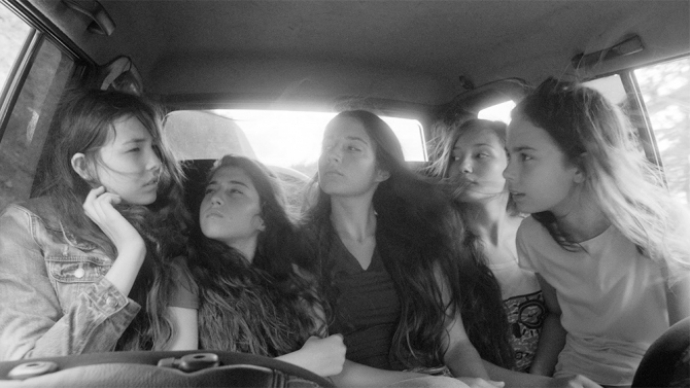“Mustang” opens with the line, “It’s like everything changed in the blink of an eye,” and it’s appropriate.
When the innocent beach play of five orphaned sisters living in small-town Turkey is misconstrued by the community as sexual deviancy, their uncle suddenly forces them to live in increasingly more repressive conditions.
From here, the film launches on a thoughtful exploration of youth, family, sexuality and the construct of femininity. As the prospect of arranged marriages approaches, each sister tries to grapple with her lack of agency in her own way. The narrative is told from the perspective of the youngest, Lale (played by newcomer Güneş Şensoy), as she starts to feel separated from her sisters.
The debut film by director Deniz Gamze Ergüven, “Mustang” was screened at Cannes last year to general acclaim. It was awarded the Europa Cinemas Label Award, the Lux Prize, and is nominated for the Oscar for Best Foreign Language Film.
And it’s not hard to see why.
Ergüven’s script is deeply affective without being cynical or manipulative. Şensoy leads a talented cast with her magnetic performance, with Warren Ellis’ somber yet beautiful score providing another highlight to an expertly crafted movie.
Cinematographers David Chizallet and Ersin Gok show admirable restraint—the US dollar equivalent for the movie’s budget is less than $1.5 million—without neglecting visual artistry.
The most interesting shots in “Mustang” are those of female bodies, not depicted as sexual objects for the male gaze to consume, but as human bodies without inherent sexuality. The sisters are not asexual, but their budding sexuality is largely offscreen and on their own terms, finding ways to interact with others even when confined to their uncle’s prison-like house.
The movie frees them from the narrative crafted by the conservative town they live in, allowing them to exist as complex people with their own motivations and neuroses, rather than mere scandal-makers and potential housewives whose lives are determined by their proximity to men.
Alongside scenes of reclaimed femininity, Ergüven’s prodigious eye for the tense, suggestive detail makes for other standout moments.
Lale, playing with a plastic volleyball, disturbs two of her older sisters, and is sent away to play alone.
When she accidentally sends the ball over the wall, it catches the sight of coming suitors, leading to embarrassment on her part.
It’s a remarkable piece of visual storytelling that conveys both the growing distance between Lale and her sisters and the oppressive atmosphere of an environment in which one’s own body is a source of danger.
Poignant, satisfying and thematically rich, “Mustang” is a movie so adept and elegant in its storytelling that makes its profound accomplishments look simple.









